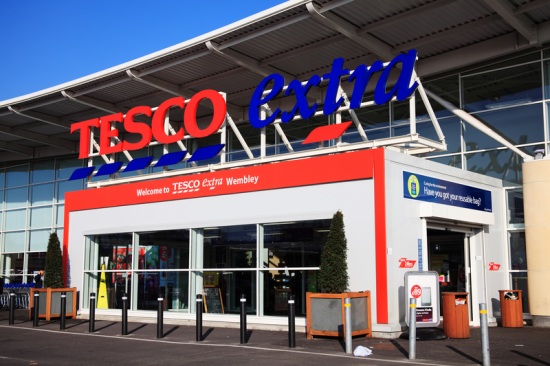With the recession biting down, many large retail chains are slowing expansions or even ceasing to open new stores entirely, instead concentrating on the retail space they already operate within the United Kingdom. Tesco is the latest store to announce it will be altering its strategy somewhat, by focusing more on the internet side of its business rather than making more populated areas in the country “Tesco Towns”.

Tesco rose through the ranks to become Britain’s premier grocery business by snapping up retail space wherever it was available, from building Tesco Express stores in town centres to constructing huge Tesco Extra hypermarkets on out of town sites. Yet boss Phil Clarke claims that the retail industry is changing so dramatically that this strategy will no longer prove profitable for the supermarket giant, as customers now focus more on the internet and smartphone aspects of the business when shopping for groceries.
In the past, Tesco has been at the forefront of the “space race” battled among the four big supermarket chains in Britain – Tesco, Asda, Morrisons and Sainsbury’s. These chains attempted to outdo each other by land grabbing to build increasingly bigger and better stores in a bid to attract customers away from the competition.
However, Mr Clarke no longer believes that this approach to retail monopolisation is an effective way of winning over consumers; rather, his businesses approach towards customer service and shoppers’ needs will determine whether Tesco remain a power to be reckoned with in Britain.
He says; “In this new world, retail will not be about buying large swathes of new real estate, but about how we, as a business, relate to our customers, their communities and the countries in which we operate.
“We’re changing our approach to stores: yes, we will build more hypermarkets, but they will be smaller hypermarkets, built for how shoppers are shopping today and how they will want to shop tomorrow.
“The choice we face is a stark one: do we lead the revolution, or become victims of evolution?”
The retailer, which was forced to post its first profit warning for 20 years several months ago, will also be making slight alterations to existing commercial properties in order to make them more customer friendly. This will include a new “food to go” initiative, aimed at drawing in consumers around meal times by offering croissants for breakfast, sushi for lunch and a variety of ready meals in the evening.
Mr Clarke, however, remains convinced that the internet and smartphone apps are the future of the retail industry. Speaking at the World Retail Congress in London, Mr Clarke stated his belief that, by Christmas, one in five online orders made by consumers in the UK will be made using a mobile phone or other mobile device.
While the UK side of business may be lagging in comparison to recent years, however, the American start up chain owned by Tesco Plc, Fresh & Easy, is making excellent progress according to Mr Clarke.
Talking about the American leg of operations, he said; “The stores that we have continue to grow nicely and the reason it’s worth persisting is that the stores themselves fulfil a particular need for a particular group of customers.
“Already the changes that we have been making have gone some way to prove that there’s still life in Fresh & Easy yet.”
Do you agree with Mr Clarke’s opinion that the retail industry is changing dramatically and that internet shopping will soon overtake the physical experience? Or do you think that more people will always prefer to go to the supermarket, or shopping centre, in person rather than have their goods delivered to their door? Are you, in fact, a convert to internet and smartphone shopping, or do you still visit your local supermarket every week? Let us know what you think in the comments section below.